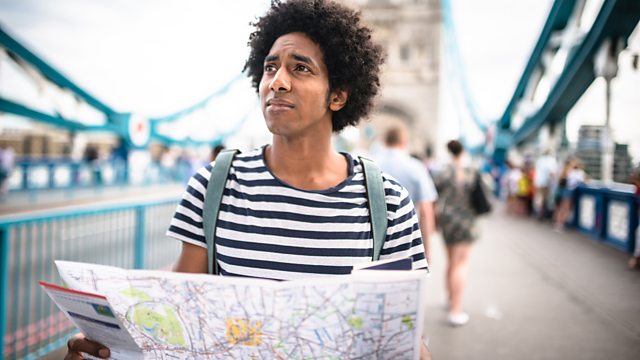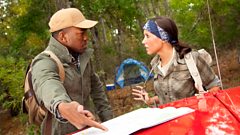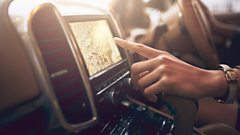Can I improve my sense of direction?
Why do some people frequently get lost whereas others can orientate themselves with ease? We explore the biological and environmental factors that influence success.
Do you find your bearings quickly or are you easily disorientated? Do your friends trust you with the directions in a new city?
Finding our way in the physical world – whether that’s around a building or a city - is an important everyday capability, one that has been integral to human survival. This week CrowdScience listeners want to know whether some people are ‘naturally’ better at navigating, so presenter Marnie Chesterton sets her compass and journeys into the human brain.
Accompanied by psychologists and neuroscientists Marnie learns how humans perceive their environment, recall routes and orientate themselves in unfamiliar spaces. We ask are some navigational strategies better than others?
Marnie also hears that the country you live in might be a good predictor of your navigation skills and how growing up in the countryside may give you an wayfaring advantage. But is our navigational ability down to biology or experience, and can we improve it?
With much of our modern map use being delegated to smartphones, Marnie explores what implications an over-reliance on GPS technology might have for our brain health.
Presenter: Marnie Chesterton
Producer: Melanie Brown
(Photo:Lost man with map. Credit: Getty Images)
Last on
More episodes
Clips
-
![]()
Are women or men better at navigating?
Duration: 02:19
-
![]()
What is GPS doing to our brains?
Duration: 02:15
Broadcasts
- Fri 12 Feb 2021 20:32GMT�鶹������ҳ��� World Service Americas and the Caribbean, UK DAB/Freeview, News Internet, Europe and the Middle East & Online only
- Fri 12 Feb 2021 21:32GMT�鶹������ҳ��� World Service Australasia, South Asia & East Asia only
- Sun 14 Feb 2021 23:32GMT�鶹������ҳ��� World Service East and Southern Africa & West and Central Africa only
- Mon 15 Feb 2021 04:32GMT�鶹������ҳ��� World Service
- Mon 15 Feb 2021 11:32GMT�鶹������ҳ��� World Service
- Mon 15 Feb 2021 18:32GMT�鶹������ҳ��� World Service East and Southern Africa & West and Central Africa only
Podcast
-
![]()
CrowdScience
Answering your questions about life, Earth and the universe




